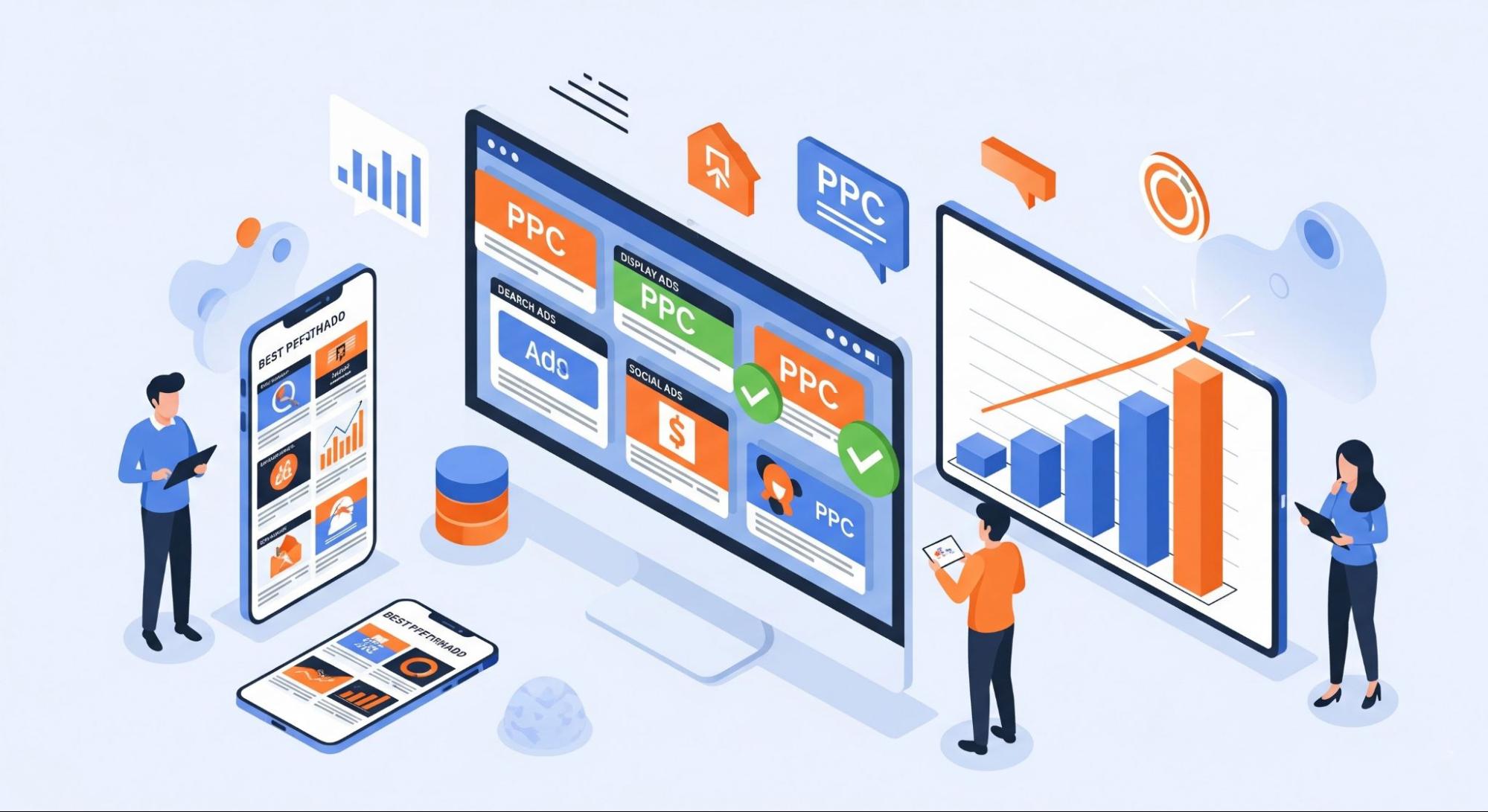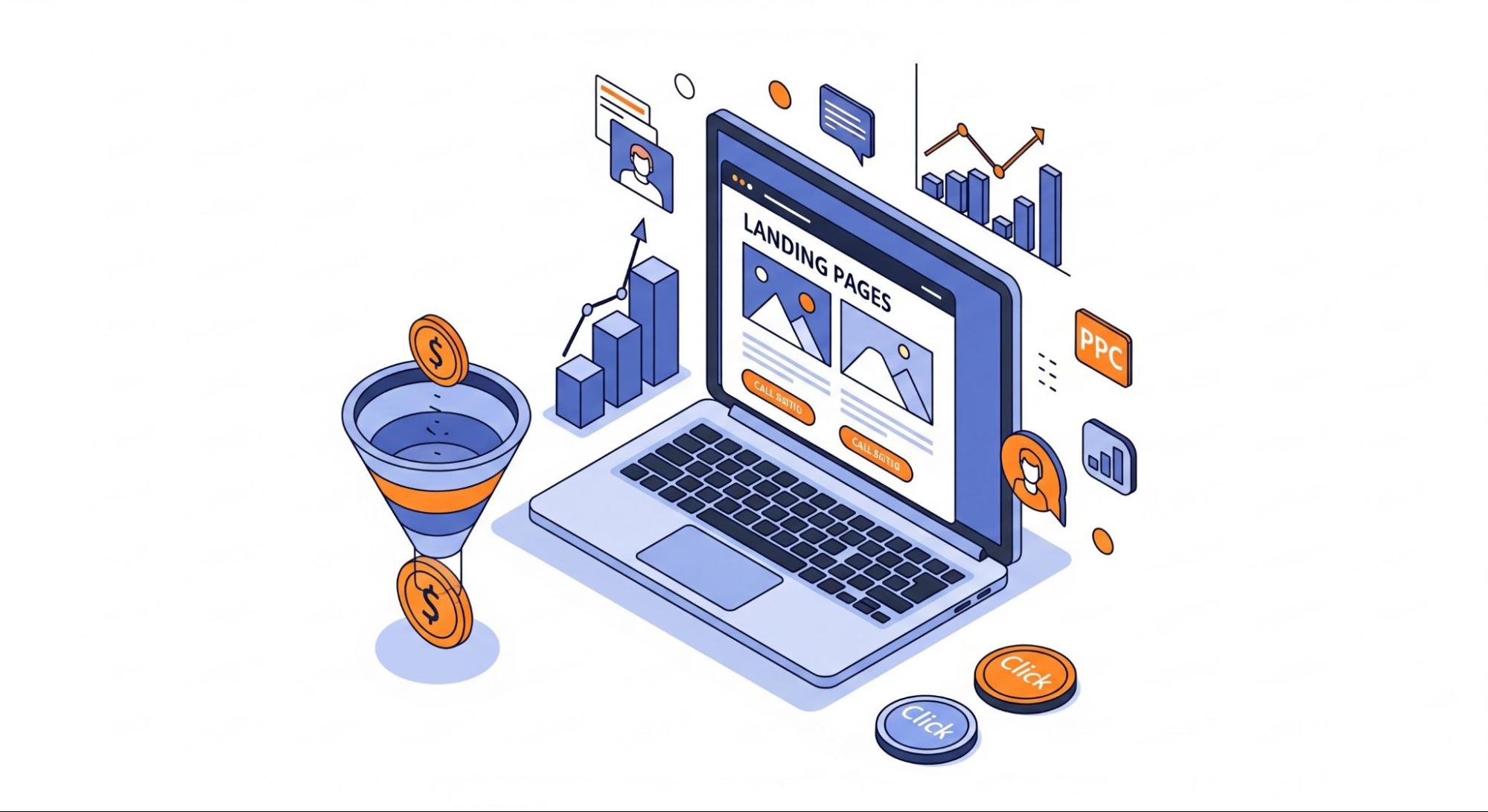In digital marketing, having a website isn’t enough. Businesses need strategies that actively connect them with ready-to-act customers. PPC lead generation is a highly effective way to quickly attract high-quality leads, ensuring efficient use of marketing budgets and measurable results.
PPC lead generation is the practice of using paid advertisements to attract potential customers and guide them toward conversion. Unlike organic traffic, PPC allows businesses to appear immediately in front of high-intent users, targeting specific keywords, demographics, and interests.
This precision ensures that every click has the potential to become a valuable lead, making PPC a key strategy for both small businesses and large companies seeking to expand their customer base.
In this article, we’ll learn how PPC drives quality leads, the most effective platforms to use, key campaign elements, common challenges, proven strategies for maximizing results, and how RankEgg can help businesses achieve measurable success.
PPC Lead Generation: 7 Proven Strategies to Boost Leads

PPC campaigns are designed to attract users who are already curious about your products or services. Paid ads enable businesses to target users based on their intent, behavior, and demographics, ensuring that the developed traffic is more likely to convert.
Key differences between PPC traffic and organic traffic include:
- High-intent audience: Users clicking on paid ads often have immediate needs or buying intent.
- Faster results: PPC drives traffic instantly, unlike SEO, which takes months to build.
- Precision targeting: You can target specific keywords, locations, devices, and audiences.
By combining targeted campaigns with optimized landing pages, businesses can turn clicks into actionable leads more efficiently than relying solely on organic strategies.
Key PPC Channels for Lead Generation
Not all PPC platforms are created equal. Selecting the proper channels is crucial for capturing high-quality leads.
Google Ads (Search & Display)
- Reach users busily searching for relevant products or services.
- Display ads increase visibility across websites within Google’s network.
Bing Ads
- Often overlooked, but can deliver lower-cost clicks.
- Particularly effective for B2B audiences and older demographics.
Social Media PPC
- Facebook & Instagram Ads: Target users based on interests, behaviors, and demographics.
- LinkedIn Ads: Ideal for B2B lead generation and professional audiences.
Essential Elements of a High-Converting PPC Campaign
To maximize the effectiveness of PPC lead generation campaigns, several key elements must be optimized:
- Keyword targeting and intent: Focus on high-intent keywords relevant to your audience’s search queries.
- Ad copywriting and creative: Craft compelling headlines and visuals to grab attention.
- Landing page optimization: Ensure fast loading times, clear messaging, and easy-to-use forms.
- Call-to-action (CTA) clarity: Make it obvious what users should do next, such as “Sign Up Now” or “Get Your Free Quote.”
Each of these components works together to improve click-through rates, engagement, and ultimately lead conversions.
Challenges in PPC Lead Generation
While PPC is highly effective, businesses often face obstacles that can impact performance:
- High cost-per-click (CPC) in competitive industries can quickly drain budgets.
- Click fraud may lead to wasted ad spend from bots or competitors.
- Poor targeting results in low-quality leads that are unlikely to convert.
Awareness of these challenges helps businesses plan more innovative campaigns and avoid common pitfalls.
Proven Strategies to Maximize Leads from PPC
To get the most out of your PPC investment, consider implementing these strategies:
- Smart bidding and budget allocation: Use automated bidding strategies to maximize conversions.
- A/B testing ads and landing pages: Continuously test different copy, visuals, and forms to improve performance.
- Retargeting campaigns: Re-engage visitors who didn’t convert on their first visit.
- Conversion tracking and analytics: Monitor performance and adjust campaigns for better ROI.
These tactics ensure that every click has the potential to become a valuable lead.
RankEgg’s PPC Lead Generation Solutions

RankEgg provides end-to-end PPC management designed to deliver measurable results:
- Comprehensive PPC management across Google, Bing, and social media ads.
- Advanced keyword and audience targeting to reach high-intent users.
- Landing page optimization for better user experience and higher conversions.
- Ongoing monitoring and ROI-driven reporting to track campaign success.
- Customized strategies tailored to each business and industry.
Partnering with RankEgg ensures your PPC campaigns are data-driven, cost-efficient, and conversion-focused.
Why Choose RankEgg for PPC Lead Generation
Choosing the right PPC partner is crucial for maximizing ROI:
- Expertise in ROI-focused campaigns ensures your budget is spent efficiently.
- Transparent reporting provides clear insights into performance metrics.
- Experience across industries supports both B2B and B2C campaigns, delivering consistent results.
With RankEgg, businesses can confidently scale their lead generation efforts while minimizing wasted spend.
Conclusion
PPC lead generation is a powerful tool that allows businesses to connect with high-intent customers efficiently and cost-effectively. By targeting the right audience, crafting compelling ads, and optimizing landing pages, companies can turn clicks into qualified leads and boost their return on investment. With strategies like retargeting, A/B testing, and smart bidding, PPC campaigns become a dynamic engine for growth.
Partnering with an experienced team like RankEgg ensures your campaigns are data-driven, conversion-focused, and tailored to your business goals, helping you achieve long-term success in the competitive digital landscape.
Frequently Asked Questions (FAQs)
Absolutely. Even with modest budgets, small businesses can attract highly targeted leads and see quick results.
Unlike SEO, PPC campaigns can generate traffic and leads almost immediately after they are launched.

